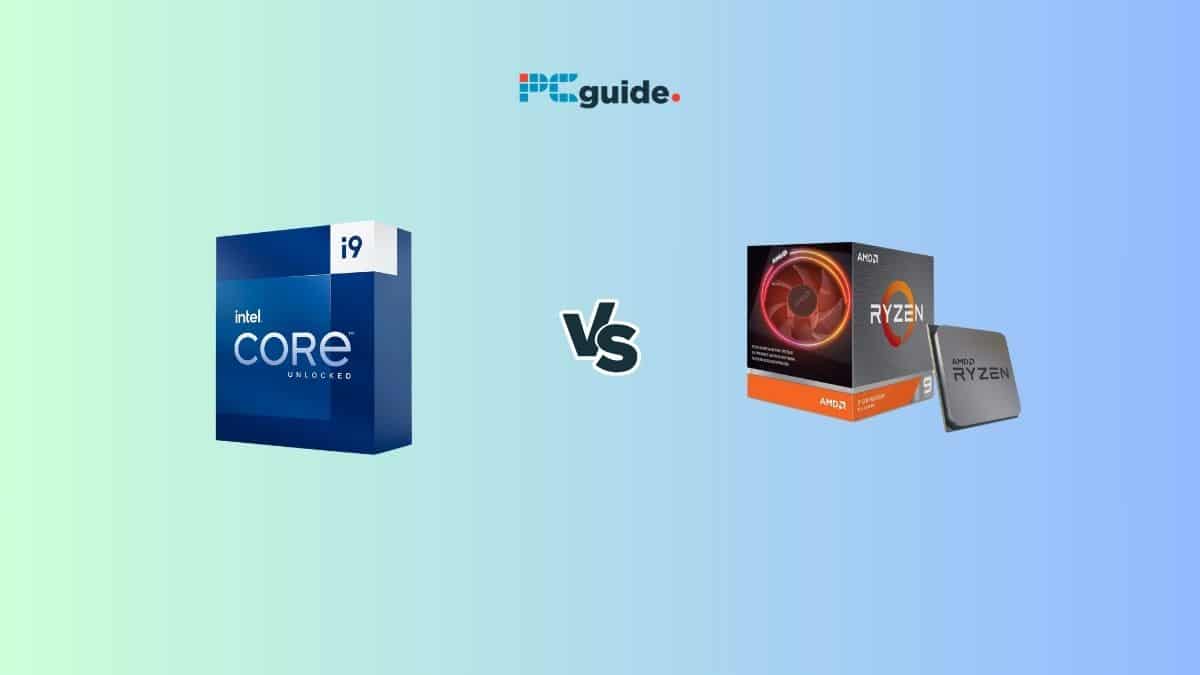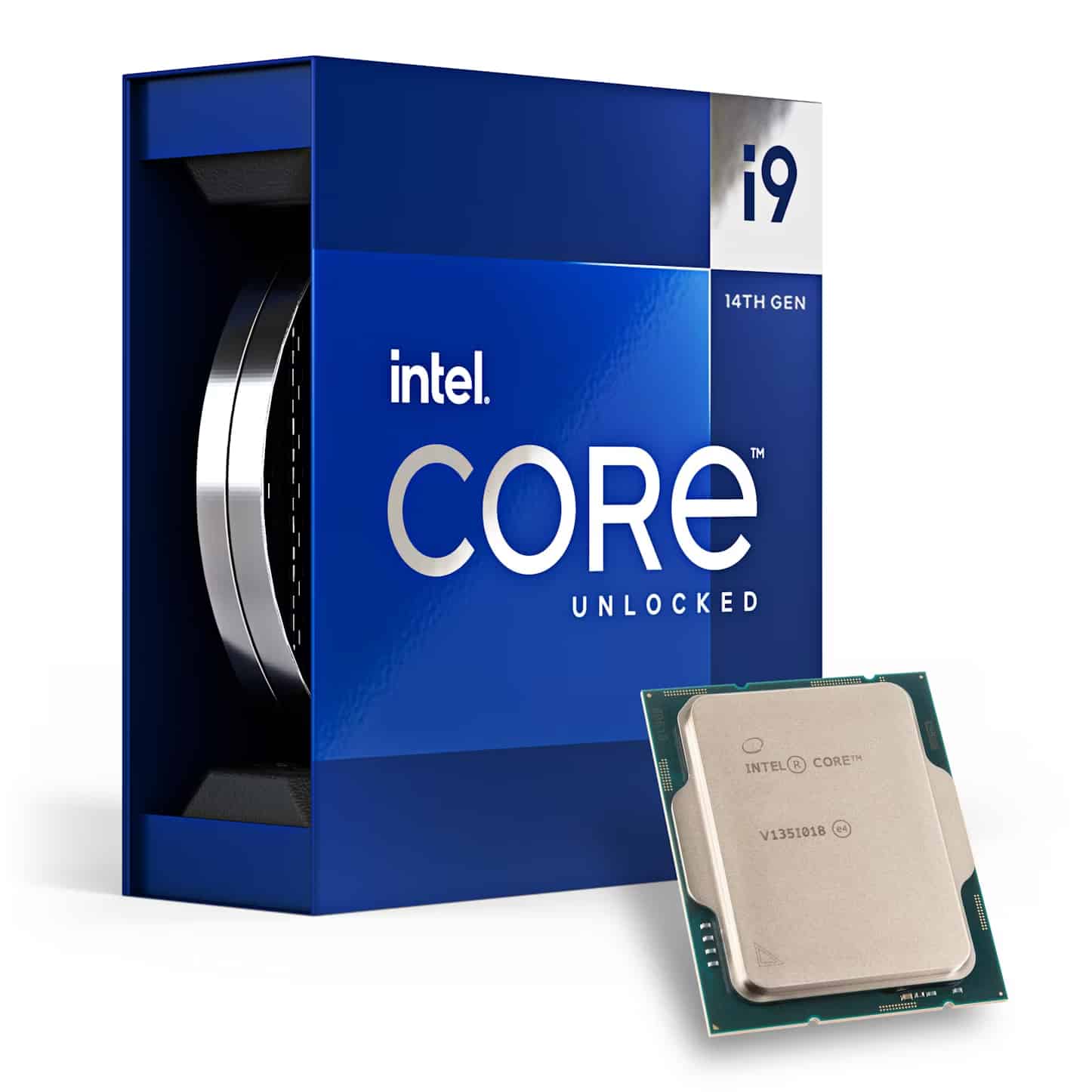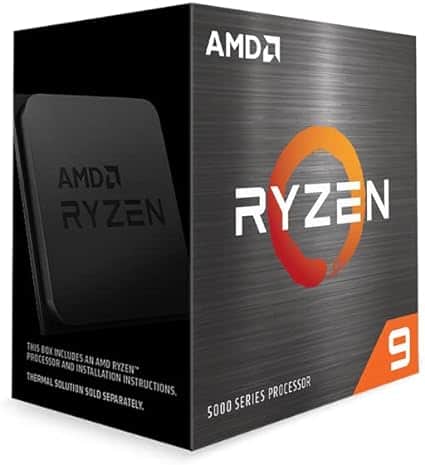Core i9 14900KS vs Ryzen 9 5950X: What’s the gap?

Table of Contents
As the rivalry in the CPU market reaches new heights, the anticipated showdown between the Core i9 14900KS vs. Ryzen 9 5950X has captured the imagination of tech enthusiasts and professionals around the globe. Each of these flagship processors is poised to redefine the benchmarks of computing performance. But how do they really stack up against each other?
In this detailed CPU comparison guide, we’ll explore the nuances that distinguish the Core i9 14900KS from the Ryzen 9 5950X, shedding light on their specifications, expected performance, and overall value to help you understand the dynamics of this formidable matchup. Join us as we navigate through the intricacies of these leading CPUs to discern what truly sets them apart in the competitive landscape.
Core i9 14900KS vs. Ryzen 9 5950X: Specs comparison
Let’s break it down:
- Core Count and Efficiency: The i9-14900KS’s 24 cores (8 Performance, 16 Efficiency) dwarf the Ryzen 9 5950X’s 16 cores. This is a major advantage for heavy multi-threaded tasks like video editing, simulations, and AI-assisted workflows.
- Clock Speeds: A Mixed Bag: The Ryzen 9 5950X has a slightly higher base clock (3.4 GHz vs. the i9’s 3.2 GHz). However, the i9-14900KS’s max turbo frequency of 6.2 GHz gives it a significant edge for single-core performance, impacting tasks like gaming framerates.
- Cache Matters: The i9-14900KS likely has larger L1, L2, and L3 caches. This could mean faster data access and improved overall system responsiveness.
- Power and Heat: The Ryzen 9 5950X has a lower TDP (105W vs. the i9’s 150W). This means it’ll likely run cooler and use less power. However, the i9-14900KS could offer better performance under sustained heavy loads due to its higher TDP.
Spec comparison table
| Specification | Core i9-14900KS | Ryzen 9 5950X |
|---|---|---|
| Fabrication Process | 10nm | 7nm |
| Physical Cores | 24 (8 Performance + 16 Efficiency) | 16 |
| Threads | 32 | 32 |
| Base Frequency | 3.2 GHz | 3.4 GHz |
| Boost Frequency | 6.2 GHz | 4.9 GHz |
| Cache | Larger L1, L2, L3 | – |
| TDP | 150W | 105W |
| AI Capabilities | Expected | Yes |
| iGPU | Yes | No |
| SSD Support | Enhanced PCIe lanes | PCIe 4.0 |
Important notes:
- These i9-14900KS specs are. We need official benchmarks to confirm the real-world performance differences.
- Motherboard compatibility, iGPU needs, and the role of SSDs also factor into the overall system comparison.
Core i9 14900KS vs. Ryzen 9 5950X: Performance
While official benchmarks are needed for a definitive comparison, let’s analyze where each CPU might hold an advantage:
- Core Wars: The Core i9-14900KS’s 24 cores (8 Performance, 16 Efficiency) dwarf the Ryzen 9 5950X’s 16 cores. This translates to potential dominance in heavily multi-threaded tasks like video editing, 3D modeling, and scientific simulations.
- Clock Speeds: A Mixed Bag: The Ryzen 9 5950X has a slightly higher base clock speed. However, the i9-14900KS is to have a significantly higher turbo clock, potentially giving it the edge in single-core performance for gaming and snappy everyday use.
- Architecture Matters: The i9-14900KS, with its Raptor Lake Refresh architecture, likely has efficiency improvements over the Ryzen 9 5950X’s Zen 3 design. This may translate to better performance per watt.
- The GPU Factor: The i9-14900KS, like most Intel Core CPUs, has integrated graphics. These are weak compared to a dedicated GPU but useful for troubleshooting. The Ryzen 9 5950X lacks integrated graphics, necessitating a graphics card.
Other considerations
- PCIe Support: The i9-14900KS could have more robust PCIe support for the latest storage and expansion devices.
- RAM: Both support modern DDR5 RAM, but motherboard compatibility and price play a role.
Performance table
| Specification | Core i9-14900KS | Ryzen 9 5950X | Notes |
|---|---|---|---|
| Performance Cores (P-Cores) | 8 | 16 | Ryzen 9 5950X has more cores overall, but might be slower per core |
| Efficiency Cores (E-Cores) | 16 | 0 | i9-14900KS wins for multitasking |
| Base Clock Speed | 3.2 GHz | 3.4 GHz | Small difference, i9-14900KS turbo clock is much higher |
| Max Turbo Frequency | 6.2 GHz | 4.9 GHz | i9-14900KS likely offers better single-core performance |
| Architecture | Raptor Lake Refresh | Zen 3 | Newer architecture might have hidden efficiency gains |
| TDP (Thermal Design Power) | 150W | 105W | i9-14900KS needs a more powerful cooler |
Core i9 14900KS vs. Ryzen 9 5950X: Price and value
Price plays a crucial role in deciding between high-end CPUs. While the Core i9-14900KS’s official price is unknown, it’s safe to assume it will be pricier than the Ryzen 9 5950X. Here’s why:
- The “KS” Premium: Intel’s “KS” series chips are typically priced higher than their non-KS counterparts.
- Bleeding-Edge Tech: The i9-14900KS, represents the latest in Intel’s desktop CPU technology. This often translates to a higher launch price.
- The Value of Time: The Ryzen 9 5950X, launched in 2020, has seen significant price drops. It now offers excellent performance for its lower cost.
- The Cost of the Whole Build: Factor in the costs of compatible motherboards (ensure they support the latest tech) and a robust cooler to handle the likely high-power draw of the i9-14900KS.
Price and potential value table
| Factor | Core i9-14900KS | Ryzen 9 5950X | Notes |
|---|---|---|---|
| Launch Price | $689 | $799 (Launched in 2020) | Prices fluctuate, i9-14900KS may drop over time |
| Current Price | Unknown | Can be found under $400 | Shows how CPU prices fall over time |
| Performance Gains | Significant in multi-core, decent in single-core | Excellent, but outpaced by i9-14900KS | Is the extra performance worth the higher cost of the i9? |
| Target User | Enthusiasts needing maximum power | Gamers, content creators, most users who want great performance without breaking the bank | Depends on your workload intensity |
Final verdict
The Core i9 14900KS and the Ryzen 9 5950X are both powerhouses in the world of desktop CPUs. Intel’s chip promises more cores and potentially higher clock speeds for maximum performance, especially if you do content creation that benefits from a high core count.
The Ryzen 9 5950X offers a compelling mix of proven performance, a lower price (especially as it has been on the market for some time), and better power efficiency. It’s a fantastic option for gamers and power users who don’t want to break the bank.
The best CPU for you depends on:
- Workload: If you primarily do multi-core tasks like video editing, the i9-14900KS may be worth the investment. If gaming is your focus, the Ryzen 9 5950X offers strong performance for less.
- Budget: The i9-14900KS will likely be pricier at launch.
- Future-Proofing: The i9-14900KS’s newer architecture might give it a longer lifespan.

